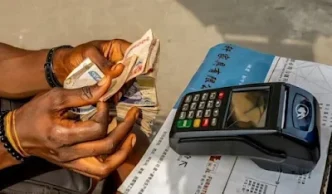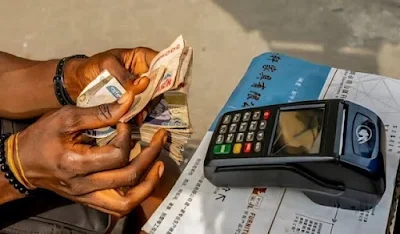*Geotagging and the New PoS Directive: What You Need to Know.*
A recent directive on geotagging for PoS machines has stirred conversations, but let’s break it down clearly.
First, this move is not designed to affect legitimate PoS operators.
It is mainly targeted at curbing fraudulent practices, especially those linked to kidnappers, scammers, and other criminal networks who use PoS terminals to move illicit funds.
What Exactly is Geotagging?
In simple terms, geotagging works like a location stamp.
It’s the process where a device, like your phone, camera, or even a PoS terminal automatically records its exact location (using GPS coordinates such as latitude and longitude) whenever it performs an action.
For PoS providers like MoniePoint or Opay, this means they can instantly know the precise spot where a transaction takes place.
If a crime is reported, investigators can trace the location without delay.
How Does This Affect PoS Agents?
Here’s the key part: your PoS must now remain within a set distance (about 10 meters) from the address you registered as your business location.
So, in view of this;
If your PoS is at your registered shop or stand, you have nothing to worry about.
But if you registered with your home address and then move your PoS to a market or roadside stand far from your house, transactions will not go through.
This directive is to stop “mobile PoS” operators who carry machines around for shady dealings, making it difficult to trace illegal transactions.
Why It Matters:
At its core, this policy is about security & accountability. While it might inconvenience agents who failed to register their actual business addresses, it’s a major step in the fight against financial crimes.
In the end, legit operators will continue business as usual, while fraudsters will find it harder to exploit the PoS system.
Key takeaway: If you’re a PoS agent, ensure your registered business address matches the exact spot where you operate. That way, your services won’t be disrupted, and you’ll stay compliant with the new rules.
The move, announced on Tuesday by the CBN aims to enhance transparency, curb fraud, and strengthen the monitoring of electronic transactions in Nigeria’s rapidly growing cashless economy.
“This directive is a critical step toward securing Nigeria’s financial ecosystem,” said CBN Governor, Olayemi Cardoso, in a press briefing.
“Geo-tagging will provide us with accurate data on transaction locations, improve regulatory oversight, and protect consumers from illicit practices.”
The directive has sparked mixed reactions. Financial technology experts and banking officials have welcomed the move, citing its potential to boost accountability.
The CBN has assured stakeholders that it will collaborate with banks and payment service providers to facilitate a smooth transition.
The apex bank also plans to roll out awareness campaigns and technical support for operators in rural areas.
Non-compliance with the directive will attract penalties, including fines and potential suspension of operating licenses, the CBN warned.
The bank has urged all PoS operators to contact their acquiring banks or licensed payment terminal providers to begin the geo-tagging process immediately.









